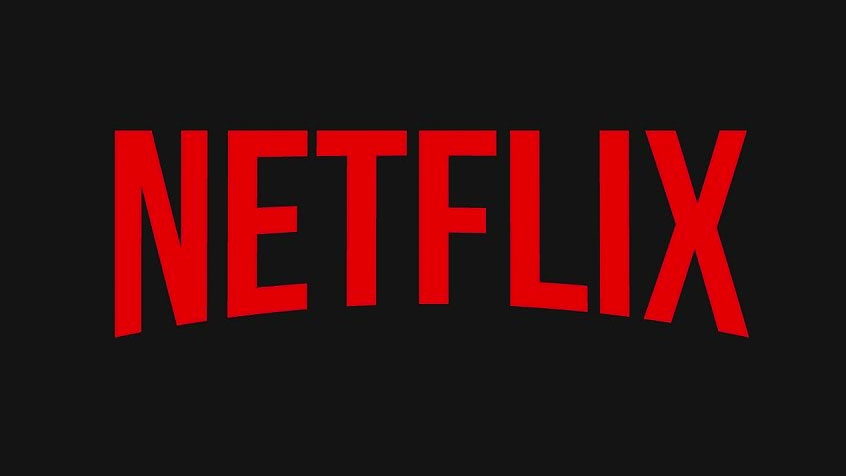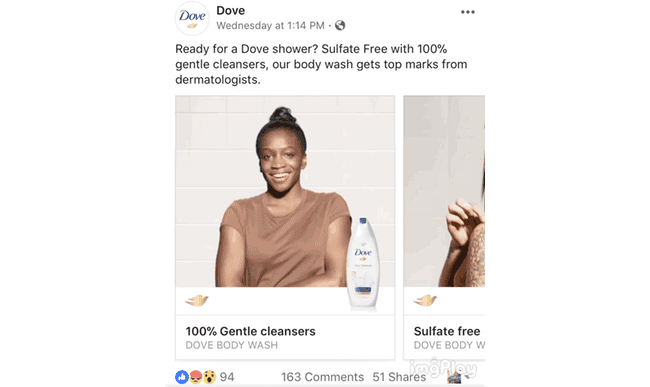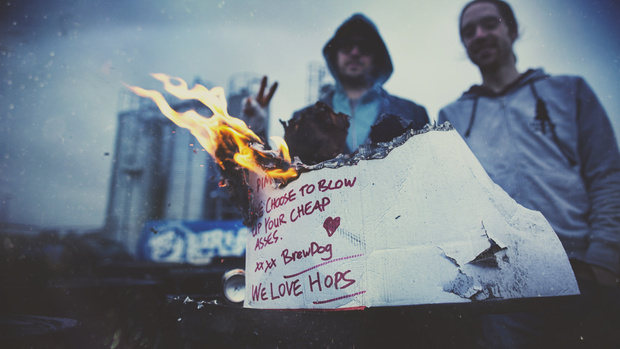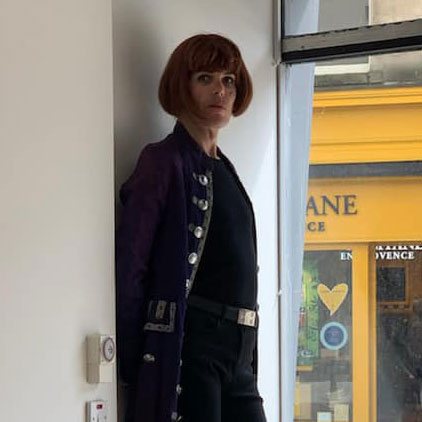The good, the bad and the WTF of brand apologies
Why do companies find it so hard to apologise? Here are some of the best and worst examples.
Sign up to Creative Bloq's daily newsletter, which brings you the latest news and inspiration from the worlds of art, design and technology.
You are now subscribed
Your newsletter sign-up was successful
Want to add more newsletters?

Five times a week
CreativeBloq
Sign up to Creative Bloq's daily newsletter, which brings you the latest news and inspiration from the worlds of art, design and technology.

Once a week
By Design
Sign up to Creative Bloq's daily newsletter, which brings you the latest news and inspiration from the worlds of art, design and technology.

Once a week
State of the Art
Sign up to Creative Bloq's daily newsletter, which brings you the latest news and inspiration from the worlds of art, design and technology.

Seasonal (around events)
Brand Impact Awards
Sign up to Creative Bloq's daily newsletter, which brings you the latest news and inspiration from the worlds of art, design and technology.
When you're a big corporation, sorry can genuinely be the hardest word. Companies don't always get it right, and sometimes this means that an apology is in order. Most recently it's been Facebook in the spotlight with its full-page print apology (see below) for a massive data leak.
But if it's not easy for us humans to apologise when we screw up, for companies it's even harder. Companies hate having to to admit they're wrong; it generally doesn't fit with their brand values, it might leave them open to lawsuits, and it can have a ruinous effect on their share price.
And that's why corporate apologies, should they happen at all (most companies know that the most furious Twitterstorms will blow over after a couple of days and that they can probably grit their teeth and ride it out) often come across as so mealy-mouthed and weaselly. They're usually drafted by committee, with half an eye on keeping the shareholders happy, so it's very rare you'll get a proper, hand-on-heart mea culpa.
Sometimes companies get their apologies right; more often they get them wrong. And occasionally you have to marvel at a stunning piece of corporate not-giving-a-hoot. Here are some examples from across the board; bear them in mind if you're ever called upon to defuse an online row.
01. KFC
We all know what KFC's business is. It's chicken. No one's going to KFC for the coleslaw. So when KFC recently switched distributors and the chicken failed to arrive, resulting in most of its 900 UK restaurants having to shut down temporarily, it had a bit of a problem on its hands.
With a social media storm and people even calling the police about the chicken crisis, KFC responded with a pitch-perfect full-page ad in The Sun and Metro, designed by Mother London. It put its hands up, accepted the blame and promised that it was working to rectify the issue, and did so with a brilliantly redesigned logo. Now that's how you do an apology.
02. Netflix

Back in the olden days of 2011, when Netflix was still posting DVDs to subscribers, it managed to create huge customer upset when it dropped its all-in-one $9.99 monthly subscription and introduced separate $7.99 subscriptions for streaming and DVDs in the post, meaning a 60% price increase if you wanted both.
Sign up to Creative Bloq's daily newsletter, which brings you the latest news and inspiration from the worlds of art, design and technology.
Responding to angry subscribers, Netflix CEO Reed Hastings opened his letter with, "I messed up. I owe you an explanation." Good start. He followed it up with a sincere apology, and then explained that he was going to reverse any decisions: instead he'd split the DVDs-by-post bit of Netflix into a separate company, Qwikster. Qwikster lasted just a few weeks before shutting down; we all know where Netflix is now.
03. Apple
A past master of the bland corporate apology that leaves nobody happy, Apple took a different approach when Taylor Swift announced a boycott of Apple Music for not paying artists for music played during its one-month free trial period. It instead took to Twitter, where its SVP of Internet Software and Services, Eddy Cue, settled the matter over two tweets:
#AppleMusic will pay artist for streaming, even during customer’s free trial periodJune 22, 2015
We hear you @taylorswift13 and indie artists. Love, AppleJune 22, 2015
Taylor swiftly ended her boycott and eventually promoted Apple Music.
04. Pepsi
We've spoken elsewhere of Pepsi's terrible ain't-protest-cool campaign from last year, but what we didn't mention was just how badly it handled the apology. "Pepsi was trying to project a global message of unity, peace and understanding," it says, overlooking the fact that it was actually trying to sell Pepsi.
"Clearly we missed the mark, and we apologize," it continues. Fair enough. But then: "We did not intend to make light of any serious issue." And it's this business of intent that really dilutes the apology; it's basically trying to shrug the blame off by saying, we didn't mean to do it.
Pepsi continues by stating that it's removing the content and halting any further rollout, and then finishes on this glorious note: "We also apologize for putting Kendall Jenner in this position." Don't mess with the Kardashians.
05. Dove

Having kicked off a massive row with an advert on Facebook that appeared to show a black woman transforming into a white woman after using its soap, Dove found itself uncomfortably in the spotlight, accused of using racist imagery. It responded with this tweet:
An image we recently posted on Facebook missed the mark in representing women of color thoughtfully. We deeply regret the offense it caused.October 7, 2017
What we have here is a textbook non-apology: Dove reducing its mess-up to missing the mark. Instead of apologising for what it's done, it instead states that it regrets the offence that it caused, a piece of semantic sleight-of-hand that amounts to, 'whatever, it's not our fault if you were offended'.
06. BrewDog

We've seen some good and bad examples of brand apologies, but leave it to BrewDog to do things differently. It recently hit the headlines with a ham-fisted promotion to mark International Women's Day, but it already had a reputation for a no-holds-barred, take-no-prisoners approach, as demonstrated when it tangled with The Portman Group, the responsibility body for the UK drinks industry body.
In 2014 The Portman Group took issue with the name of BrewDog's Dead Pony Club ale and instructed licensees and retailers to to place orders; BrewDog responded thus: "On behalf of BrewDog PLC and its 14,691 individual shareholders, I would like to issue a formal apology to the Portman Group for not giving a shit about today’s ruling. Indeed, we are sorry for never giving a shit about anything the Portman Group has to say, and treating all of its statements with callous indifference and nonchalance."
You can read BrewDog's full, withering response here.
Related articles:

Jim McCauley is a writer, performer and cat-wrangler who started writing professionally way back in 1995 on PC Format magazine, and has been covering technology-related subjects ever since, whether it's hardware, software or videogames. A chance call in 2005 led to Jim taking charge of Computer Arts' website and developing an interest in the world of graphic design, and eventually led to a move over to the freshly-launched Creative Bloq in 2012. Jim now works as a freelance writer for sites including Creative Bloq, T3 and PetsRadar, specialising in design, technology, wellness and cats, while doing the occasional pantomime and street performance in Bath and designing posters for a local drama group on the side.
![If nothing else, Facebook's latest apology demonstrates that Mark Zuckerberg has a child's signature [click the image to enlarge]](https://cdn.mos.cms.futurecdn.net/5ZEGvYJNqHrPhVaMYhVRfN.png)
![It's rarely appropriate to use humour in an apology, but here KFC nails it [click the icon in the top right to enlarge]](https://cdn.mos.cms.futurecdn.net/T9AFVXPriEKNbxm3uSzYw7.jpg)
